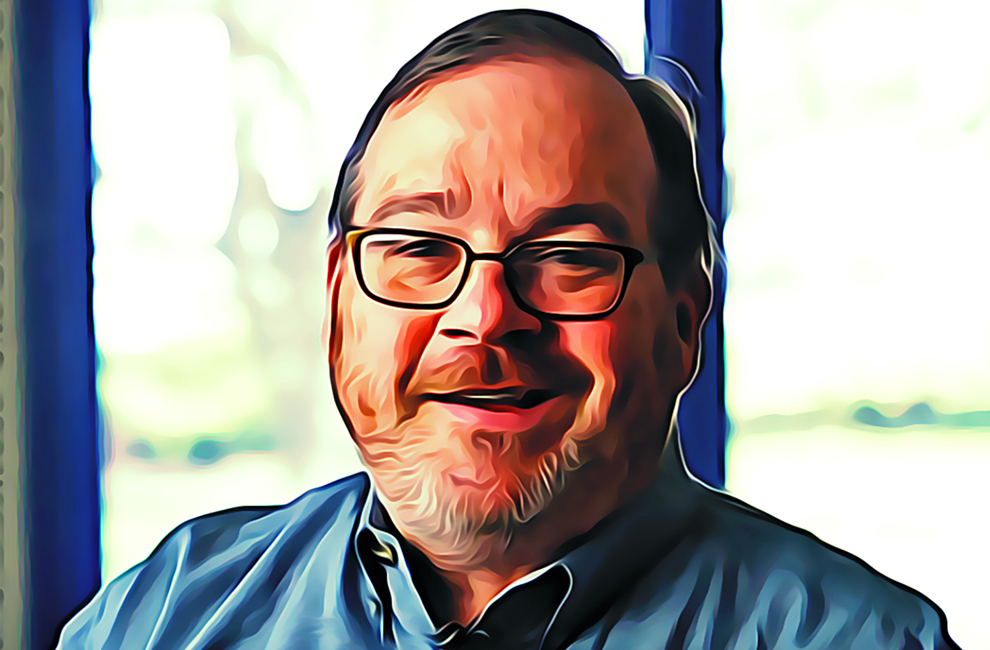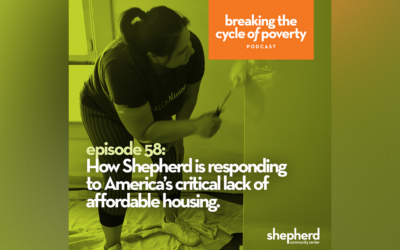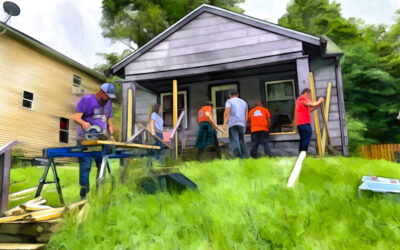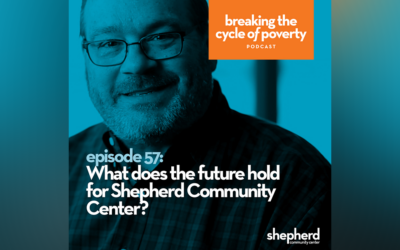Jay Height was working in Cincinnati in early 1995 when the leadership of Shepherd Community Center approached him about a job. He said no at first.
A short time later, however, Height and his wife, Jane, sensed that God really was calling them to serve in Indianapolis. And by the summer of ’95, Height and his family had moved to a new neighborhood in a new city, one that has become the focal point of their lives and ministry for nearly three decades.
After 27 years of service in the same neighborhoods, the Heights have set such deep roots and touched so many lives that it’s now hard to imagine the near Eastside without their leadership.
“We thought we would be here a few years and then go back (to Cincinnati),” Height, Shepherd’s executive director, says. “And you know, we ended up raising our family here. The fact that our children serve in similar ministries is something I rejoice over, because they have caught the vision.”
To understand that vision, it’s important to focus on one word: Neighbors.
Shepherd doesn’t have clients. Or even parishioners. It has neighbors – who the staff and volunteers are called not just to serve but to love.
“I need to be a lifelong learner, and I learn on the front porches of my neighbors,” Height said. “It’s important for Jane and me to sit and talk to our neighbors and to hear them share their needs and their concerns and their frustrations.”
Leading a ministry, especially one as large as Shepherd, is a deeply challenging and complex job in normal times. Normal isn’t the word many would use to describe the days, months and now years after March 2020, when COVID forced businesses and schools to close, and neighbors’ needs suddenly soared.
The Shepherd team — with the support of their many business, government, and church partners – pivoted quickly to meet the mounting needs and to find new ways to deliver services during the early days of the pandemic. Shepherd Academy switched almost overnight to online learning with the center providing internet-connected devices and helping families obtain internet service, Shepherd’s existing food assistance ministry was rapidly expanded, and even the Shepherd parking lot became a center for services that ranged from free wifi to food distribution.
Now, as families struggle with soaring inflation and students work to catch up from pandemic learning loss, Shepherd is adjusting once again to meet neighbors’ needs.
“As we talk to our neighbors, we better understand that with inflation, the math doesn’t make sense for them,” Height said. “Inflation is a disproportionate tax on the poor, and things no longer work for them when it comes to paying their bills. We’re seeing more people who feel hopeless and desperate, and we’re seeing that at younger and younger ages. So, we have a lot of work to do to help change that.”
Before he entered the ministry, Height worked first in television news and then as an aide for a member of Congress from Ohio. Both experiences have served him well as a ministry leader, where communicating effectively and forging strong partnerships are vital to success.
Looking ahead, Height said a primary goal for Shepherd will be to continue to identify leaders and to help them develop.
“Success isn’t about Shepherd getting bigger,” Height said. “It’s more about the number of people we can train and raise up and maybe developing a model that can be replicated in other parts of the city and other parts of the country. We have the ability to train leaders in other cities and even other countries in what we’ve learned here. And so I think the future is about how do we help grow more leaders? How do we help build models that can break the cycle of poverty through other organizations in other communities?”
Forming ideas about the future of ministry and finding new ways to help neighbors in need flow out of Height like a river in springtime. Where do the energy and drive come from after such a long time in one place?
“It’s a privilege to do this work,” Height said. “I get to see people who we helped years ago and now get to see their kids. We recently hired a young lady for our childcare ministry who was in our summer programs as a child. Now she’s a mom, and she said, ‘My kids have a different world than I did.’ It’s a blessing to hear those words. I think knowing that such things are possible keeps me going – knowing that more kids can break the cycle of poverty, more can recover from COVID learning loss, more families can get jobs. And, ultimately, that more people know there’s a God who loves and cares for them.”




